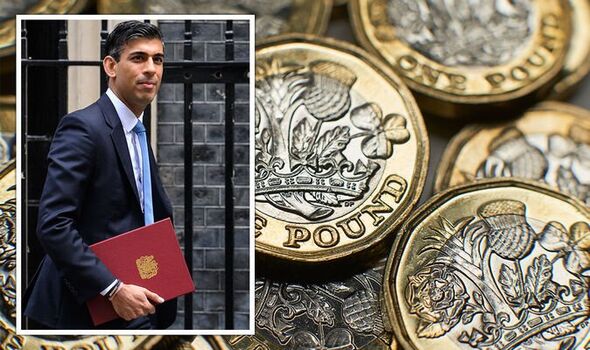Rishi Sunak’s statement shows he’s paying a ridiculously low tax rate

Rishi Sunak and money: as the richest man in the UK, isn’t he keeping a little too much of his cash away from his own government’s Treasury?
Let me get this right: Rishi Sunak pays 45 per cent in income tax and 20 per cent in capital gains tax.
He made £1,970,992 in income and capital gains last year. We may take it as a rule of thumb that this was split between his prime ministerial salary of £164,951 and capital gains that presumably totalled £1,806,041.
His total tax payment was £432,493, which is less than he might be expected to pay, so we may also conclude that he did not claim his full salary.
Add to that his two per cent National Insurance of 3,299 and we get total deductions of £435,792 (or thereabouts, depending on how much of his salary he claimed).
That about 22 per cent of his total earnings. It’s as near to the percentage a person earning the lowest amount possible to still be paying tax – £12,570 – as makes no odds.
So, for example, a nurse earning the average wage for her profession (£35,000 per year) pays £7,814 in income tax and National Insurance. That is also about 22 per cent of their total earnings – but in fact is a little more than the percentage Sunak pays.
Doesn’t it seem a little strange that, in a country that has supposedly progressive tax rates, the richest man in the country pays only the same proportion as the average in a profession that has been on strike due to low pay?
If I were a nurse, I’d be up in arms about this.
Come to that, if I were a higher-earner who actually pays anything more than 22 per cent on my total earnings for the 2021-22 tax year, I’d be up in arms too. Wouldn’t you?
Vox Political needs your help!
If you want to support this site
(but don’t want to give your money to advertisers)
you can make a one-off donation here:
Be among the first to know what’s going on! Here are the ways to manage it:
1) Register with us by clicking on ‘Subscribe’ (in the right margin). You can then receive notifications of every new article that is posted here.
2) Follow VP on Twitter @VoxPolitical
3) Like the Facebook page at https://www.facebook.com/VoxPolitical/
Join the Vox Political Facebook page.
4) You could even make Vox Political your homepage at http://voxpoliticalonline.com
5) Join the uPopulus group at https://upopulus.com/groups/vox-political/
6) Join the MeWe page at https://mewe.com/p-front/voxpolitical
7) Feel free to comment!
And do share with your family and friends – so they don’t miss out!
If you have appreciated this article, don’t forget to share it using the buttons at the bottom of this page. Politics is about everybody – so let’s try to get everybody involved!
Buy Vox Political books so we can continue
fighting for the facts.
The Livingstone Presumption is now available
in either print or eBook format here:
Health Warning: Government! is now available
in either print or eBook format here:
The first collection, Strong Words and Hard Times,
is still available in either print or eBook format here:









An absolute scandal as you rightly point out.
Sunak pays 45% on most of his earned income but only 20% on income that he has done absolutely nothing to earn at all.
I hope Sunak thanks Gordon Brown for setting up this arrangement in the first place:
“From 1965 to 1988, most gains incurred a 30% rate of capital gains tax. In 1988, Conservative Chancellor Nigel Lawson aligned rates with those for income tax (where the top rate was 40% at the time) and this regime continued until 2008, when Gordon Brown changed the rate to 18% for all taxpayers.”
(Wikipedia)
The estimated revenue shortfall is usually reported to be around £16 billion a year.
Something to bear in mind next time Brown has an article in the Guardian bemoaning the level of poverty in this country.
The Guardian’s coverage on the rate of Capital Gains Tax has been a bit confused and confusing.
This is what it said yesterday:
“Britain’s CGT rates were aligned with income tax rates until 1998, when Gordon Brown slashed them as chancellor. His successor Alistair Darling put them back up 10 years later, however, introducing a top rate of 28%.”
That top rate was then cut to the current 20% in 2016.
Hope this clarifies.